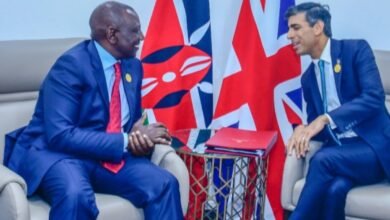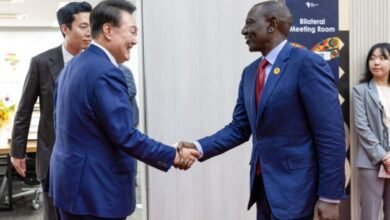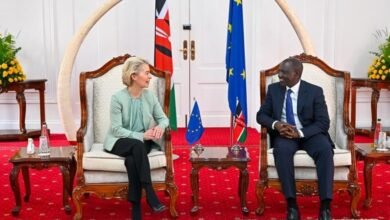
President Uhuru Kenyatta has responded in a statement on the judgment made by the International Court of Justice (ICJ) on the maritime border row between Kenya and her neigbouring country Somalia.
The president, who is currently in the United States, downplayed ICJ’s ruling saying that Kenya rejects it in totality and would not recognise the court’s findings.
“At the outset, Kenya wishes to indicate that it rejects in totality and does not recognize the findings in the decision. The decision embodies a perpetuation of the ICJ’s jurisdictional overreach and raises a fundamental question on the respect of the sovereignty and consent of States to international judicial processes,” said Kenyatta.
“International tribunals have jurisdiction only to the extent of consent by a State.”
Considering that ICJ is the final court to determine judjement for such cases, President Kenyatta said that the decision would strain relations between Kenya and Somalia.
“This decision is, in the circumstances, a zero-sum game, which will strain the relations between the two countries. It will also reverse the social, political and economic gains; and potentially aggravate the peace and security situation in the fragile Horn of Africa Region,” the statement further reads.
Kenyatta accused ICJ of failing to permit the use, let alone the exhaustion, of regional dispute resolution mechanisms, “despite the existence of a robust African Union legal framework on border issues and dispute settlement.”
According to the President, Kenya will pursue the matter through the institutions of the African Union such as the African Union Border Programme and its Peace and Security, architecture, in addition to other bilateral arrangements.
It was a huge blow to Kenya Tuesday when the ICJ ruled in favour of Somalia over a maritime border row with Kenya.
According to ICJ, there is no evidence to show Somalia submitted to Kenya’s use of latitude and longitude to determine maritime borders.
ICJ said that using Kenya’s method would not result in equitable determination of the maritime borders with Somalia.
Kenya’s claim that delimitation would endanger the livelihoods of fishing communities was not founded, ruled the ICJ.
For the past four decades, Kenya has said a line due east of the point where the two countries meet at the coast represents the maritime border.
Somalia, however, argued in court that the sea frontier should follow on in the same direction as the land border.
Somalia said the talks had failed and it went to the ICJ instead. Somalia was angered by Kenya selling exploration licenses in the disputed zone to two multinationals in 2012, this is according to a report by Reuters.
Also Read:
- ICJ rules in favour of Somalia over maritime border row with Kenya
- Kenyans fire back at ICJ after ruling on maritime border case with Somalia
- Kenya maintains ground on border row with Somalia ahead of ICJ ruling
The disputed area is believed to be rich in oil and gas, with both countries accusing each other of auctioning off blocks even as the case is in court. The ICJ in 2019 set public hearings for between September 9 and September 14 of that year but would later push the start date to November 4 after granting Kenya’s request of more time to recruit a new legal team.
In June last year, Kenya then requested another postponement, this time citing the pandemic.
The United Nations (U.N) delayed the hearing till March 2021 over Kenya’s need to postpone the hearing.
Four months later, on July 22, President Uhuru Kenyatta reiterated Kenya’s firm ground never to surrender any part of her territory to anyone.
He said Kenya will continue to guard its borders and cautioned unnamed external forces against disrespecting the country’s territorial integrity.
“We will not accept anyone claiming ownership of any part of our land. Just as we have respected the boundaries of other countries, we expect that our borders and land are equally respected,” said the President.
The Head of State maintained Kenya is a peace-loving nation and will continue to jealously guard its borders and cautioned unnamed external forces against disrespecting the country’s territorial integrity.





